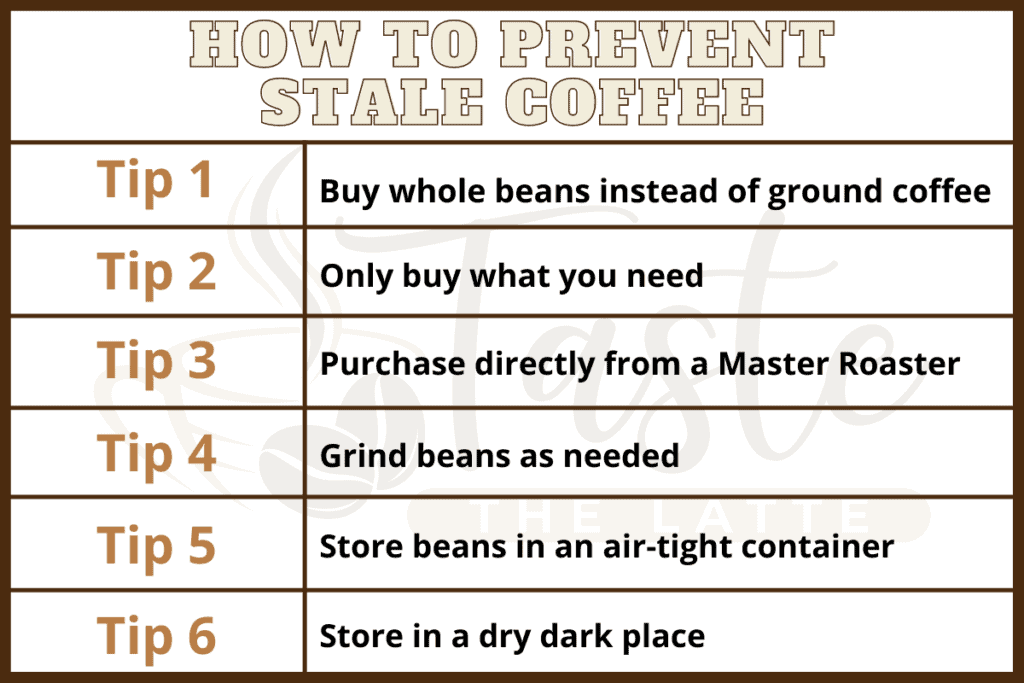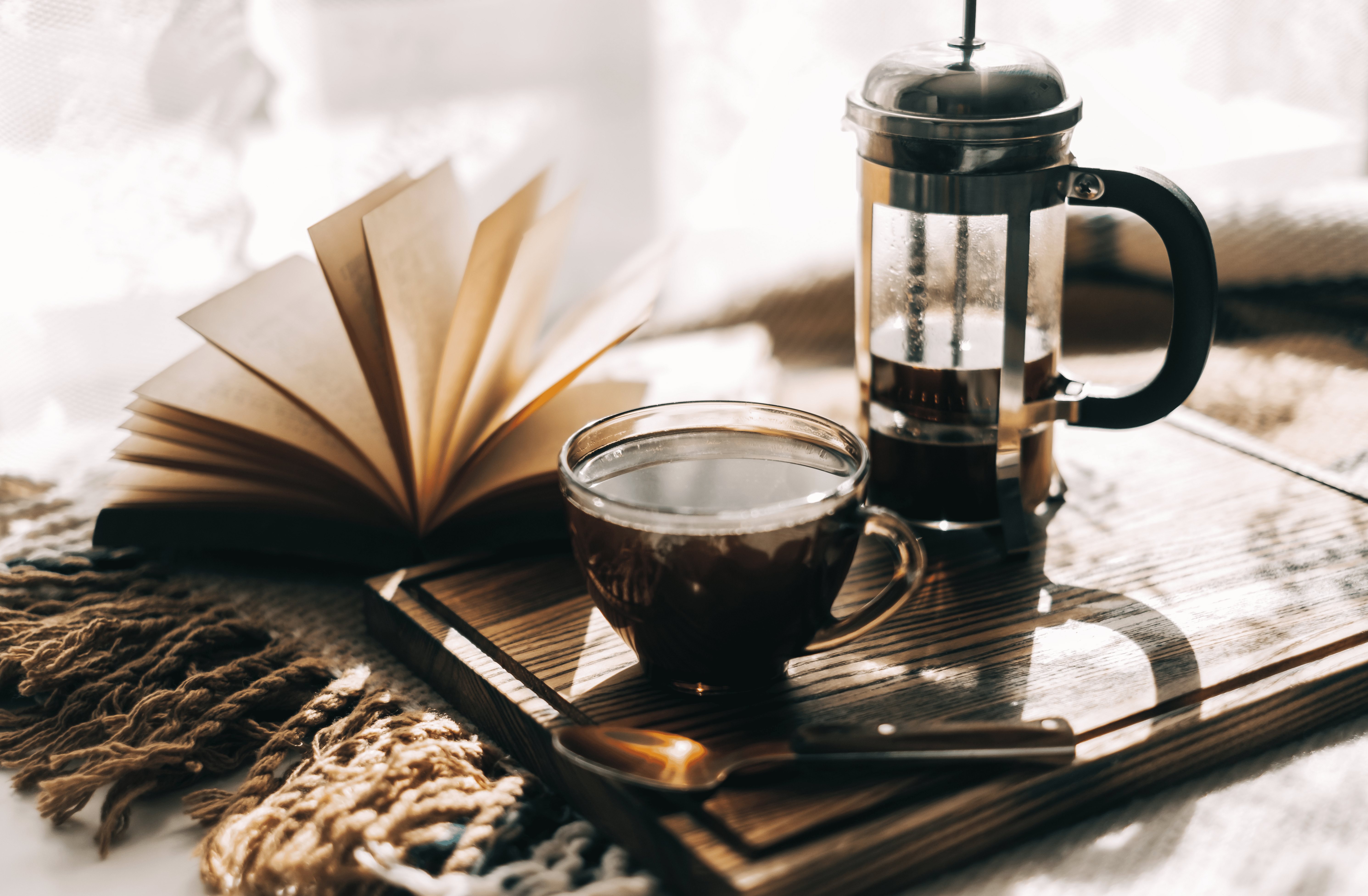If you’re familiar with a French Press, then you know the basics of how it works. It’s unlike a typical drip coffee machine or pour-over. Instead, the French Press is an immersion brew, meaning that the hot water and coffee grounds are immersed together rather than the water passing through the grounds.
As a result of being an immersion brew, certain coffee beans will work better with a French Press. What kind of coffee is best for a French Press?
Many coffee lovers prefer dark to medium roasted coffee beans when using their French Press due to their heavy body and bold flavor. You should also use fresh, high-quality beans versus pre-ground coffee.
Let’s dig more into this question to determine what kind of coffee you prefer when using your French Press.
What you Need When Using A French Press Coffee Maker
French Press is different from your typical brewing device and requires patience. All you need is your favorite French Press (here is a link to our top pick for a French press), fresh, high-quality coffee beans, a coffee grinder, and a coffee scale.
Fresh, high-quality beans will make all the difference in your coffee’s taste. Purchasing from a Master Roaster will help ensure your coffee tastes delicious every time.
A coffee scale will allow you to measure how many grams of coffee and grams of water your’e using. This may seem like an annoying extra step, but this is for your benefit, trust me. If your coffee tastes too strong or weak, you can easily adjust it for next time since you know how much coffee you used previously. Scales are also great because once you make that perfect cup of Joe, you can repeat it the next time.
How Does a French Press Brew Coffee?
Alright, let’s finally get into how a French Press works. This brewing method uses an immersion brew. Once you’ve coarsely ground your beans and boiled some water, you’re ready to start the brewing process. Add the grounds (I use 30 grams) and then the water (I use 500 grams).
Once the water is at a boil, allow to cool for 30-45 seconds before pouring into the coffee press.
Your measurements may be a bit different depending on the capacity of your French Press and your preferences. As a general rule of thumb, your coffee-to-water ratio should be 1 part coffee to 17 part water.

Once you have your coffee and water in, the brewing time will be between 3 to 5 minutes. My sweet spot is 4 minutes, but as you do some experimenting and through trial and error, you’ll find the perfect time.
This additional step is one many people do not practice. I’ve found it essential in producing a full-flavored sediment-free cup of coffee. So try it and see what you think.
Take a spoon and stir the coffee, removing any foam or bits you see. And now you wait yet again. All the floating bits begin to fall to the bottom and settle during this time. Once you’ve waited about 5 minutes, insert the plunger and plunge down until you get right above all the bits at the bottom.
Pour your sediment-free cup of coffee into your favorite mug and enjoy!
Which Roast is Best for a French Press?
This question really depends on your personal preference, but we’ll begin with what roast is typically preferred when using a French Press. As mentioned in our intro, dark to medium roast coffee beans are generally used in a French Press.
If you remember from our other article, “Differences between light, medium, and dark roasts,” dark roast coffee beans are roasted the longest, causing the flavors to be the most intense. Dark roasted coffee beans will be dark brown and will have an oily surface.
This roast also has a low acidity and the heaviest body compared to the other roast levels. Your cup of coffee will have less of the original earthy tastes and more of the bold roast flavors, such as chocolate, caramel, and nutty flavors.

We know not everyone appreciates dark-roasted coffee for a couple of different reasons. First, dark roasts tend to be a bit more bitter than light or medium roasts. Second, much of the natural flavors of the coffee bean are roasted out.
If this is you, I recommend trying a lighter roast. Light and medium roasted beans will be less oily and more acidic. Your coffee will also have a milder flavor and not be so heavy-bodied.
Where to Buy the Best Coffee Beans
When looking for the best coffee beans, it’s important to look at where they come from. Some of the top coffee producers in the world are Kenya, Colombia, Ethiopia, and Indonesia. Ensure your coffee is from a single origin.
It’s also important to look at what type of bean it is: Robusta and Arabica are the two most common. Although robust coffee contains more caffeine, arabica beans are far superior and will produce a better tasting coffee. You want to buy 100% Arabica and not a blend.
Some top choices you can easily purchase off on Amazon are listed below.
Pre-ground vs. Whole Bean Coffee with a French Press
As with other coffee brewing devices, purchasing whole coffee beans over pre-ground is always optimal. Although pre-ground coffee is more convenient and will save you time in the morning, we always recommend whole beans.
No one likes a stale cup of coffee. The extra step of grinding your coffee will ensure your cup is not losing freshness as it sits. From the moment the coffee beans are ground, the countdown begins. Once the beans come in contact with oxygen, a chemical reaction occurs called oxidation, causing them to grow stale.
Grinding coffee beans allows more air to be exposed to them faster. If you can buy freshly roasted coffee and grind it each time you want to use it, your coffee will be much fresher and tastier.
Other ways to keep your coffee beans fresher for longer are shown in the table below. For more information on how to keep your beans from getting stale, click here.

Grind Size For a French Press
Grinding for a French Press is more straightforward than grinding for any other method discussed in this blog. The coffee is continually submerged in water when brewing a French Press, so it has the greatest contact time and a complete extraction.
Therefore, you can use a coarse grind. When I brew a French Press, I set my burr grinder to the coarsest setting.
You know the grind is too coarse if it lacks flavor or tastes grassy. If the grind is too fine, you will find coffee sediment at the bottom of your cup, or the French Press will be difficult to plunge. If either occurs, adjust the grind accordingly – finer if the coffee lacks flavor and coarser if it’s thick or hard to plunge.
What Type of Water is Best With a French Press?
Since so much of a cup of coffee is comprised of water, the type of water you choose is integral. You should be using fresh, filtered, soft water.
Water hardness can affect the way your coffee tastes. Hard water contains ions and minerals, including calcium, sulfates, chlorides, bicarbonates, and magnesium carbonates. All of which are not great when it comes to taste.
Water softeners, while a good solution for hard water, are not the cheapest option. On the lower end, these filters can cost $500, and on the higher end, anywhere from $1,500 to $6,000. As you budget for a water softener, you may want to use bottled water for your coffeemaker instead.
Filtered water is also best when it comes to flavor. You can install a reverse osmosis system under your kitchen sink or use a water filter Dispenser, like a Brita.
In my home, I use a reverse osmosis system and love having fresh, clean water whenever I need it—no need to wait for the water to filter through one of those pitchers.
A good rule of thumb: If you wouldn’t drink the water from the tap, don’t use it to brew your coffee.
Final Thoughts
Medium to darker roasted coffee beans are typically preferred when using a French press. Always use fresh, high-quality beans. Course ground coffee is always required when using your French press.
Not sure if your coffee beans are old? Check out “How to Tell if Your Coffee Beans Have Gone Bad.”



